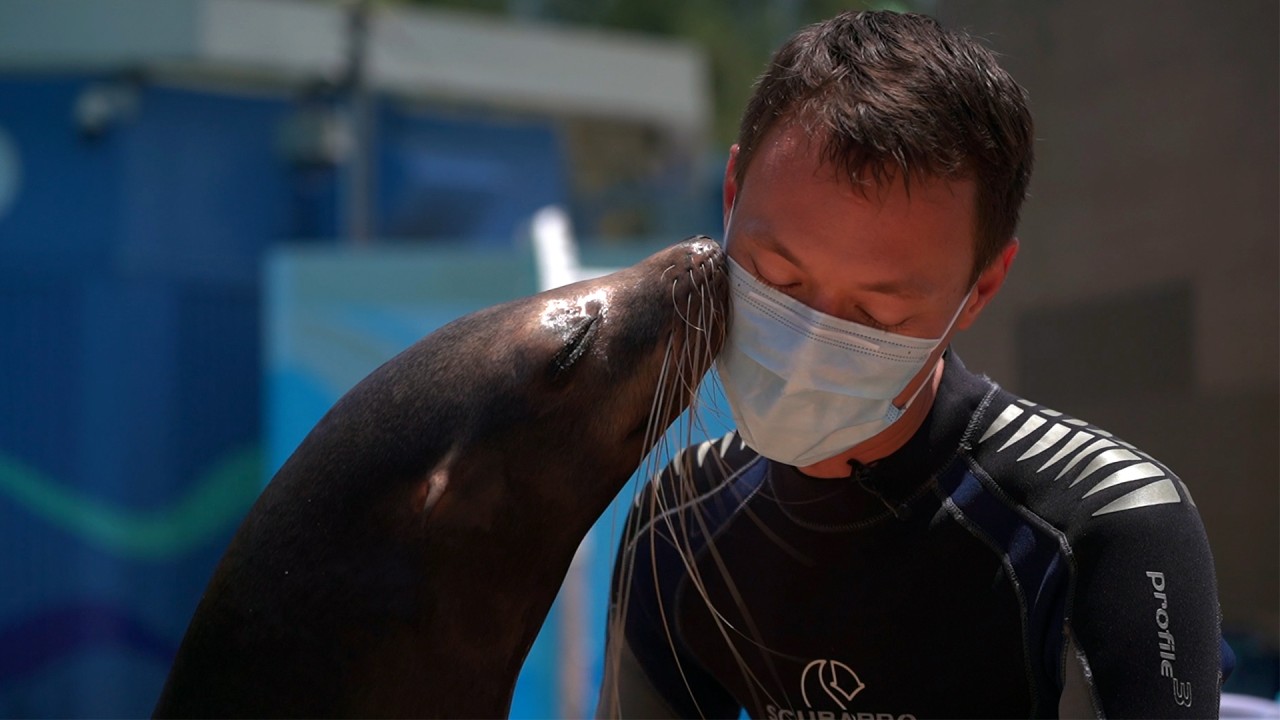
Hong Kong’s troubled Ocean Park: time to let the government run the show
- It is a good idea to revamp the park’s business model by opening the lower area to the public for free
- But outsourcing retail and entertainment businesses to private companies will take the park further from its primary mission as a non-profit organisation
Due to poor management, among other reasons, Ocean Park has been suffering losses for consecutive years. Its troubles have been compounded by the park’s temporary closure during the Covid-19 outbreak. The park’s operation was suspended for 237 days last year. The latest closure started on December 2 with no end date set.
Clearly, Ocean Park’s current business model is not sustainable. To turn the situation around, the secretary for commerce and economic development has put forward a plan. The lower park area will no longer charge an entrance fee, and will be reassigned for retail and entertainment purposes. The businesses will be outsourced to vendors.
Under the revamp, the cable cars, aquarium and other animal exhibits would be retained. Rides would not need to charge a uniform fee. New attractions will be added, including Water World, that is scheduled to open this summer.
The government’s plan is to help Ocean Park through the rough period and make the transition to a sustainable business model. The strategy has its pros and cons.
First, Ocean Park is a financially independent non-profit organisation. It sits on land provided free by the Hong Kong government. It was initially funded by the Hong Kong Jockey Club for marine conservation and education, as well as an amusement park for the general public.
However, under management by the Ocean Park Corporation, it has now turned into a tourism spot that competes with Hong Kong Disneyland. The initial purpose of marine education and conservation has been undermined, or even forgotten.

05:35
Animals at Hong Kong’s Ocean Park face uncertain future as pandemic keeps attraction closed
It is a good idea to revamp the park’s business model by opening the lower park area to the public for free. But outsourcing retail and entertainment businesses to private companies will take the park further from its primary mission as a non-profit organisation.
To make better use of public resources, all the facilities in the lowland area, mainly animal exhibits and marine conservation areas, should be operated by the Leisure and Cultural Services Department.
The government has also proposed to demolish some rides in the upper park area, and develop the vacated land into an adventure-themed zone. That would stir up more competition between Ocean Park and Disneyland.
Fate of Disneyland, Ocean Park hangs on Hong Kong’s tourism future
However, a good idea need not go to waste. The government could consider implementing the plan on the land adjacent to Disneyland, which is reserved for its future expansion. Killing two birds with one stone, this would enhance Disneyland’s competitiveness as an amusement park, as well as reduce costs by outsourcing rides and adventure facilities to private operators.
The vacated headland at Ocean Park could be used for residential development. The profit from land sales could contribute to a foundation set up to support the daily operation of the park, as well as marine education and conservation.
It is the elephant in the room that the clock is ticking for Ocean Park Corporation. The two previous chairmen, Philip Chen Nan-lok and Allan Zeman, did a good job in developing the park in the early stages but, since then, the park has become a losing proposition and done far too little on marine education and conservation.
If Ocean Park is to get back on track and fulfil its initial mission, the government should take on the management role, and stop letting businessmen run the show.
Albert Cheng King-hon is a political commentator

